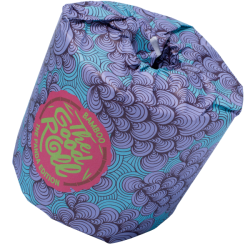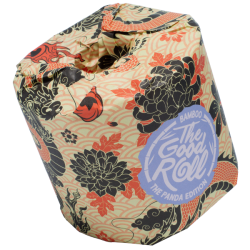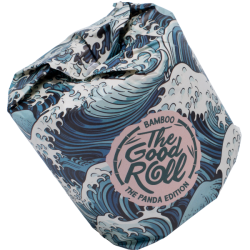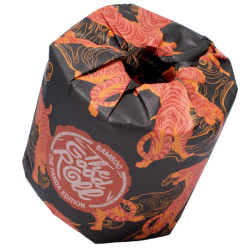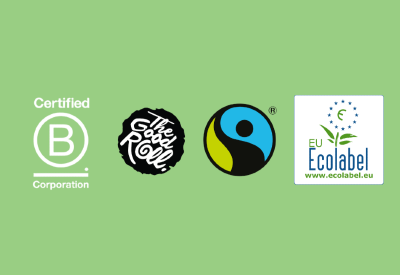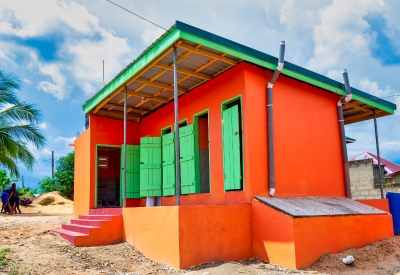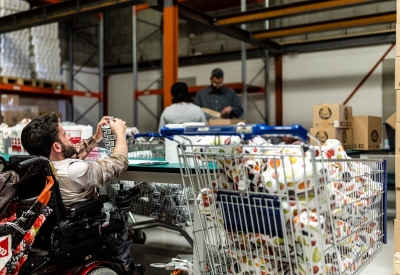The papermaking process of our bamboo paper in Europe.
How bamboo paper is made
Have you also seen the episode of Keuringsdienst van Waarde? We certainly do. In the episode a lot of information was given about using bamboo for different products, some may already be familiar with it and others not yet.
Among other things, there has been a lot of talk about the chemical (viscose) process that is used to make textiles from bamboo. About the chemicals involved, and how sustainable the further production process actually is.
The main difference between using bamboo for clothing and using bamboo for paper is that making bamboo useful for sewing clothing requires a chemical viscose process. The production process from bamboo to toilet paper does not involve a viscose process, which makes it a lot less harmful. Nevertheless, we would also like to provide you with more clarity about our (social) enterprise, and what we are doing to optimize our processes. Because: despite the fact that our products are currently the most (socially) sustainable alternative in the toilet paper industry, it can always be even more sustainable with us.
As you may know, our bamboo toilet paper is currently produced in a B Corp certified factory in Europe. More about this later…
First some more special news: next year we will produce our bamboo toilet paper with our own bamboo from Ghana! How cool is that? In this way we influence all processes in our chain, from the strong bamboo plants in Ghana to the soft bamboo toilet roll available in our shop, and everything in between. The most beautiful side effect of this? As a result, we provide employment and a fair income for our bamboo farmers, and we can start researching the use of enzymes instead of chemicals in the production process in collaboration with experts.
Watch a short video here for more information.
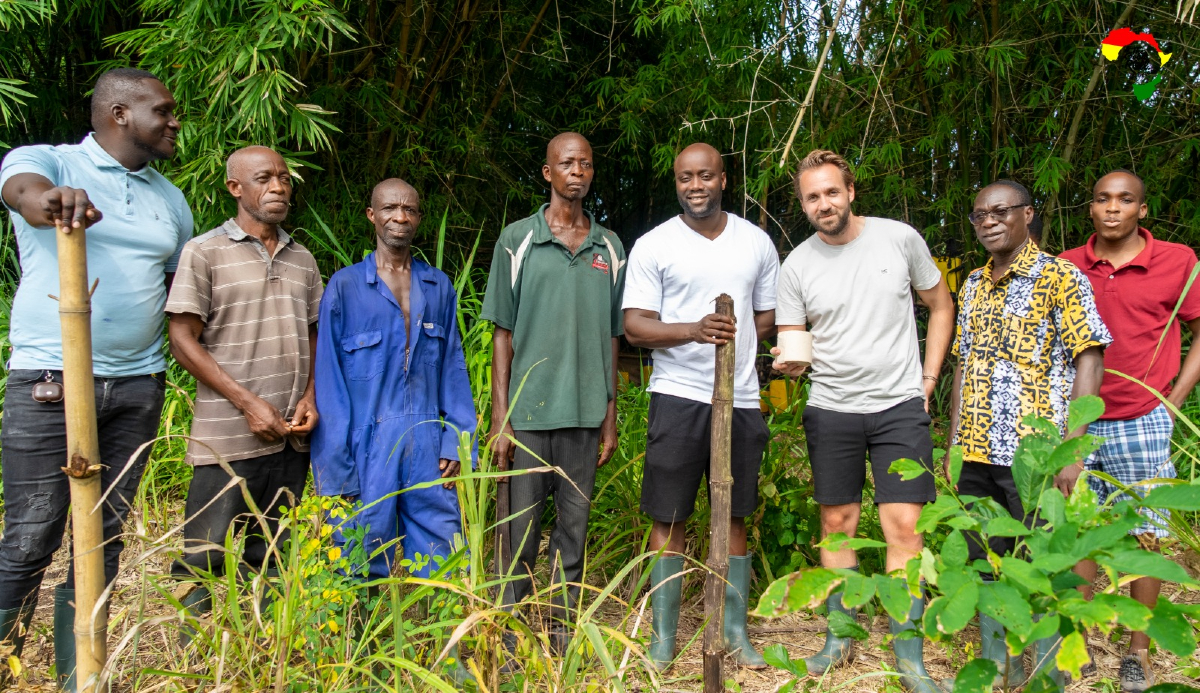
What does a B Corp factory in Europe mean and how do we produce our bamboo?
The B Corp factory we work with to produce our bamboo toilet rolls is a pioneer in carbon neutral papermaking. How did they achieve that goal?
Making paper is a process that requires enormous amounts of energy. Our partner factory uses their own solar power plant, with more than 8,000 solar panels, and a biomass power plant to generate steam, which is fed with residues from nearby forests. If more energy is needed, they buy it from suppliers with a 100% renewable certified origin.
Papermaking also requires a lot of water. Therefore, after use, their own water treatment plant restores the water to the same state as it was before it was used and returns it to the river. The residues created during the water treatment process are later reused to generate electricity. In this way, they are working towards a zero-waste horizon.
Also, the use of bleach and other unnecessary chemicals is avoided. Instead, the products are made with unbleached fibers.
Finally, in our bamboo toilet paper process, we replaced all plastic packaging with cardboard. That is not only recycled and recyclable, it is also stackable. This enables major logistical optimisation, so that fewer trucks need to be deployed. Fewer trucks = less emissions!
Because: our goal is to make the world's most (socially) sustainable toilet paper. Below you can see the entire process in an overview.
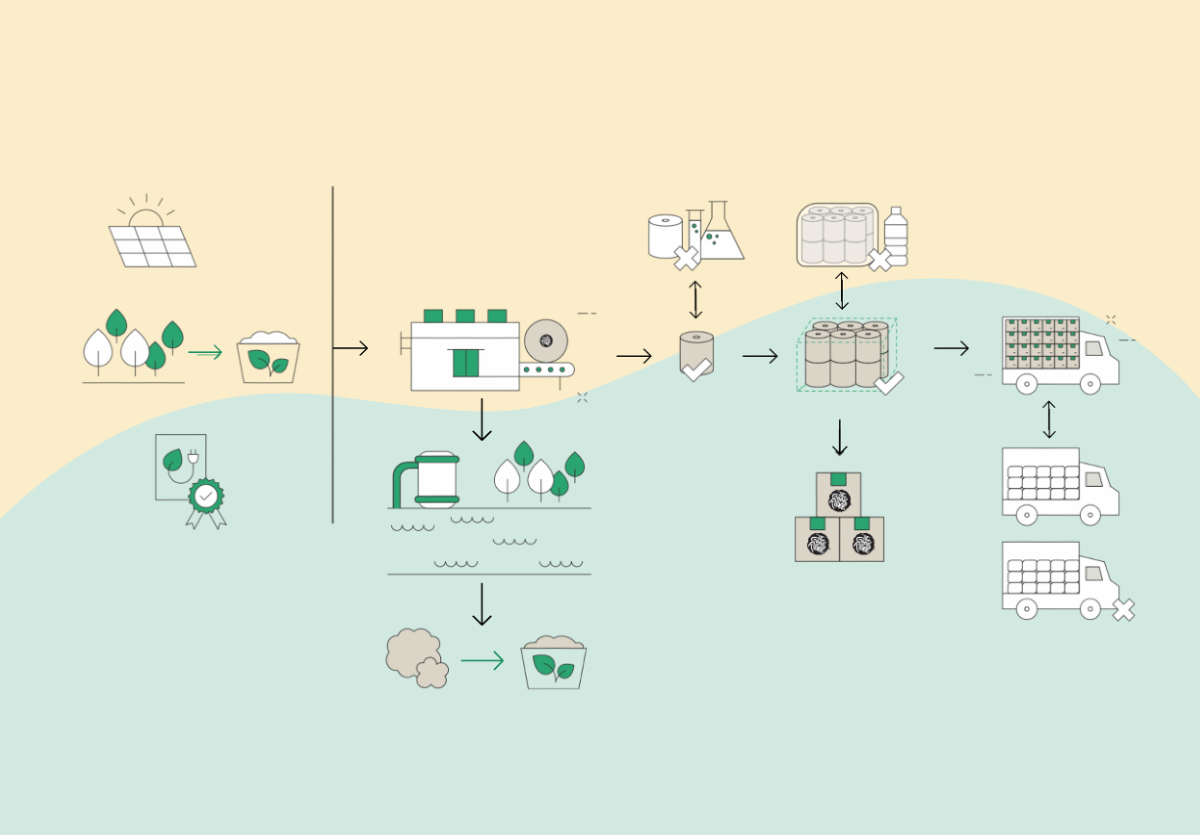
In addition, the bamboo products have been awarded with multiple certificates, including:
FSC Mix
EcoVadis Gold (maximum score in CSR)
Manufactured in a B Corp plant
Ecolabel
ISEGA – food contact compliant (for the kitchen rolls)
REACH compliant
Chlorine Free
Back to the Keuringsdienst van Waarde episode…
As highlighted in the episode, all bamboo (toilet paper) worldwide is currently produced in China.
The pulp used as described in the above process therefore comes from China. However, in order to make the most (socially) sustainable choices at the moment within the existing possibilities regarding bamboo, we have chosen to only get semi-finished products from China. This has 2 advantages:
Instead of freighters full of boxes with bamboo toilet rolls from China to Europe, only the dried bamboo pulp is shipped in this way. This takes up much less space, which in turn results in fewer emissions. A step in the right direction if you ask us.
When the pulp arrives in Europe, the bamboo pulp is rigorously checked to see if it is in order and that no harmful substances can be traced from the pulp. In order to make our rolls, the bamboo pulp must meet an extensive list of quality and safety tests - which are according to industrial standards.
We do our stinking 💩 best to work with the most sustainable parties within the current existing possibilities. Parties that have the right certificates, also in China. In addition, we are also the proud owners of a B Corp certificate in the Netherlands. We are committed to becoming a step more sustainable every day.
Do you have any tips or feedback on how we could do this? Then of course we would love to hear from you! Send us an email to hello@thegoodroll.nl!

